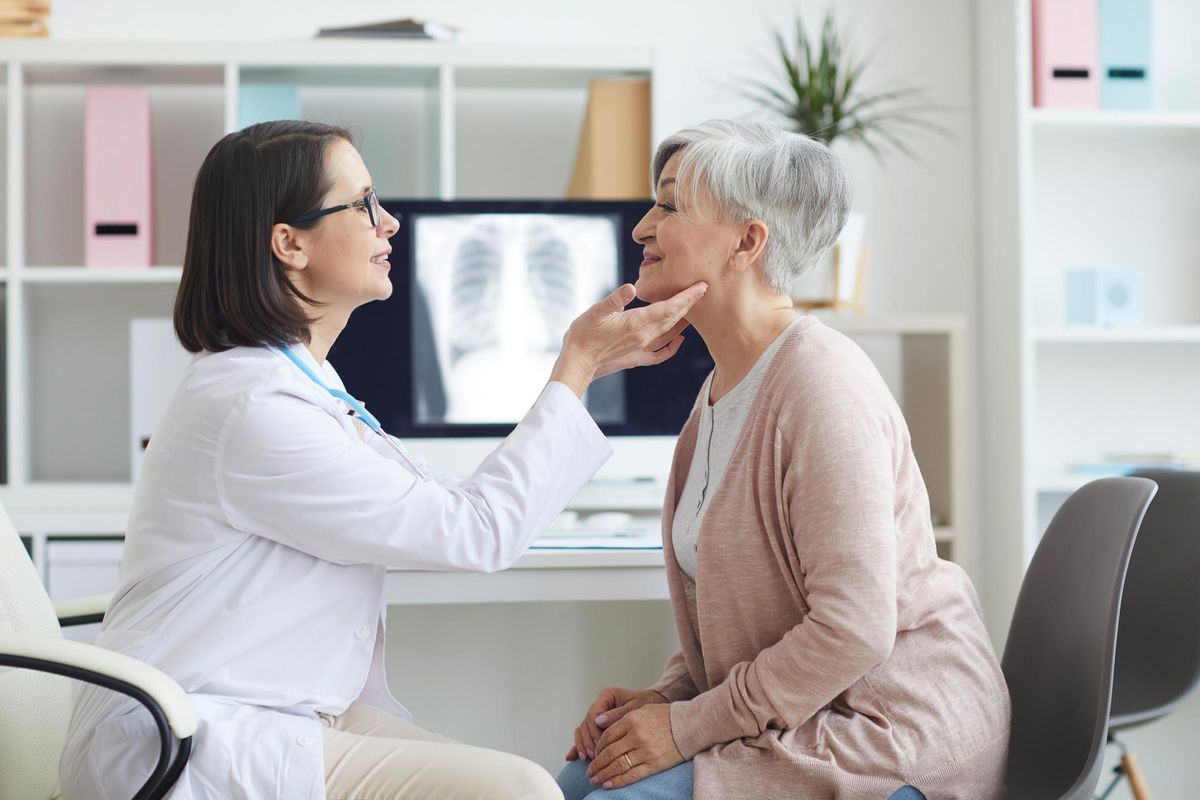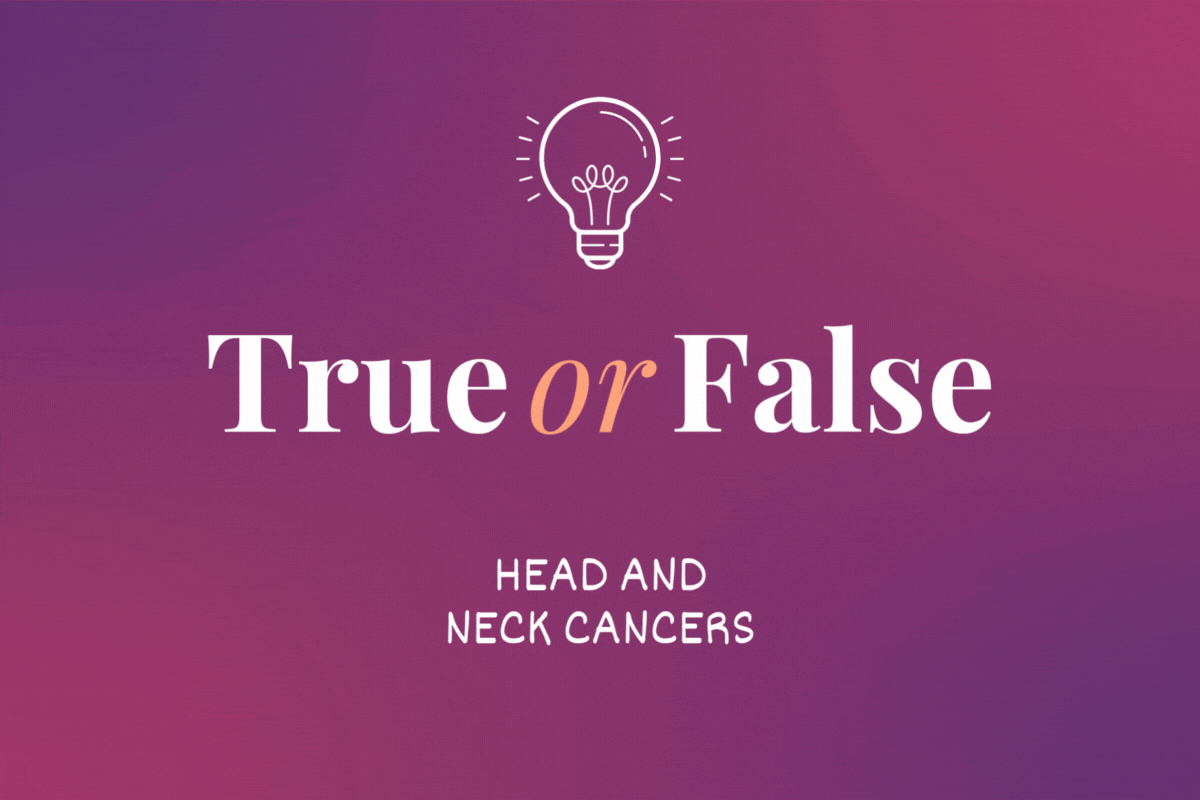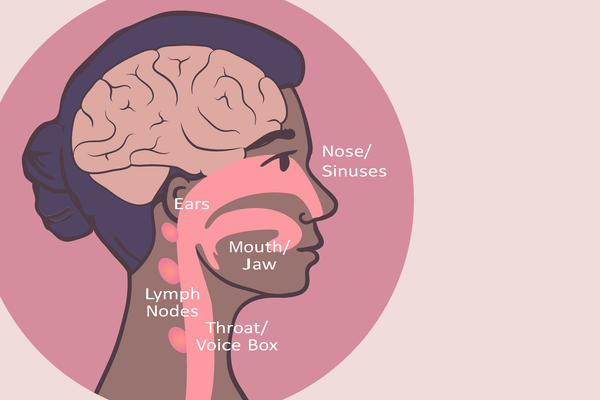If you've recently received a diagnosis of head and neck cancer, you may be feeling overwhelmed and unsure about what to do next. HealthyWomen asked Eleni Rettig, M.D., a head and neck surgeon at Brigham and Women's Hospital and Dana-Farber Cancer Institute at Harvard Medical School, to suggest questions you should ask your healthcare provider about head and neck cancer.
What type of head and neck cancer do I have?
Why this question is important:
There are a number of types of head and neck cancer, including those in the throat, voice box, mouth and lips. It's important to understand which type of cancer you have because each one has unique considerations for treatment and prognosis and may be managed by different teams of specialists.
Is this cancer hereditary?
Why this question is important:
While some head and neck cancers may have a genetic component, very few of them are hereditary. It's important to know whether your cancer is hereditary so you can determine whether your family members may also be at risk and whether you should get additional testing.
Was my cancer caused by HPV?
Why this questions is important:
Rettig said people with cancer of the oropharynx, which includes the tonsils and back of the tongue, need to know whether their cancer is caused by the human papillomavirus, or HPV. "HPV-positive oropharynx cancers have a better prognosis than HPV-negative cancers," Rettig said.
Will my treatment be specific to my HPV status?
Why this question is important:
Right now the treatment for oropharynx cancer is the same regardless of HPV tumor status, but there are many clinical trials underway to determine whether HPV-positive oropharynx can be safely managed with less treatment than what is given for HPV-negative cancers.
What are my treatment options?
Why this question is important:
Treatment options — which include surgery, radiation and chemotherapy — are different for each person and are based on factors such as their individual health, what type of tumor they have and what stage the cancer is in.
New ways of treating head and neck cancer are also being studied; these include precision medicine, where a treatment is specifically designed for a person's cancer, and immunotherapy, which activates the immune system to target cancer cells.
What are the side effects of treatment?
Why this question is important:
Side effects of head and neck cancer are very different for each patient, so it's important to ask your doctors what to expect in your particular situation.
"Depending on which treatment you have, side effects and their effect on your quality of life can range from minimal to severe. If you have extensive surgery and/or radiation, you may experience changes in your speech, swallowing and even appearance," Rettig said.
What is the survival rate of this cancer?
Why this question is important:
Factors that affect survival of head and neck cancer include the type of cancer, stage of the disease and, for oropharynx cancers, the HPV status of the tumor.
"Asking about average survival rates can give you a general sense for your prognosis, but it is also important to remember that each patient's experience is unique," Rettig said.
If I haven’t been vaccinated already, should I still consider the HPV vaccine after diagnosis or treatment?
Why this question is important:
The HPV vaccine available in the United States protects against nine types of HPV infection. If you've already been treated for HPV-positive cancer, getting the vaccine will not have an effect on the course of that particular cancer. However, it could protect you against a new infection from other types of HPV that you haven't been exposed to yet.
What specialists do I need to contact?
Why this question is important:
Rettig suggested asking your doctor to recommend a head and neck oncology practice, which typically includes a surgeon, radiation oncologist and medical oncologist. Finding the right specialists is important because they have specialized knowledge and are better equipped to meet your specific treatment needs.
What support services and resources are available to me and my loved ones?
Why this question is important:
Since caring for a loved one with cancer can be emotionally and physically draining, friends and family who will be helping you through your treatment may want to seek out a support group for caregivers.
Rettig pointed to Support for People with Oral and Head and Neck Cancer, a national support organization, and the American Head & Neck Society as great sources of support and information.
This resource was created with support from Merck.
- Fast Facts: What You Need to Know About Head and Neck Cancer ›
- Understanding Head and Neck Cancer ›
- Coping With the Emotional Impact of Head and Neck Cancer - HealthyWomen ›
- Ask the Expert: Head and Neck Cancer - HealthyWomen ›
- Reduce the Risk of Head and Neck Cancers - HealthyWomen ›
- Symptoms of Head and Neck Cancer - HealthyWomen ›
- Locations of Head and Neck Cancer - HealthyWomen ›
- True or False: Head and Neck Cancers ›
- Verdadero o falso: Cánceres de cabeza y cuello - HealthyWomen ›






